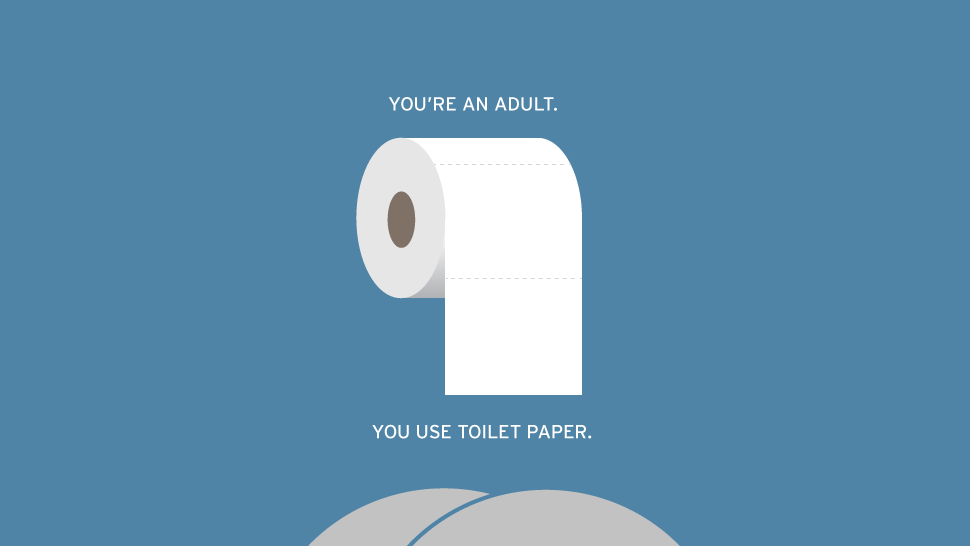CPG
Content Marketing’s Royal Flush? Meet “Post-Publish” Sponsoring
It was an eloquent rant. Last month, in an article entitled “Do You Use ‘Butt Wipes’ And If So What Is Wrong With You?” Gawker editor-in-chief John Cook passionately argued that adults should use only toilet paper to clean their derrières, and lambasted the adult baby wipe trend being propelled by sneaky viral marketing tactics. Yes, there are viral marketing campaigns encouraging adults to use baby wipes in lieu of good old toilet paper.
If the content marketing team at toilet paper brand Cottonelle read that, you’d think that they’d have said: Damn, we should have published something like that.
And it seems that Cottonelle did have that reaction. Shortly after Cook’s post ran, Cottonelle contacted Gawker about sponsoring the post and re-running it on their front page; Gawker obliged, adding an update from Cook that deserves a place in the “Content Marketing Disclaimer Hall of Fame” (which doesn’t exist, but I’m going to start it right now):
UPDATE: Five days after this was originally published, Cottonelle expressed interest in advertising on it and purchasing the right to place it at the top of Gawker’s frontpage again. The reason it is being displayed to our readers again is exclusively the result of a commercial transaction between Cottonelle and our ad department. This post is not a sponsored post. Or at least it wasn’t when it was written.
I use Charmin.
This was a win-win for both parties. Cottonelle put a funny, socially engaging piece of content in front of Gawker’s prime audience of toilet-paper consumers (urban 20 and 30-somethings), and Gawker got paid (presumably) big bucks to simply bump a post back up to the front page. Even better, Cook’s transparent update helped avoid any discontent over the tactic from Gawker’s valued community of commenters.
Cook’s transparent update helped avoid any discontent over the tactic from Gawker’s valued community of commenters.
This isn’t the first time that a piece of editorial has aligned with the viewpoint of a brand. So it makes you wonder—should brands amp up their efforts to sponsor relevant posts after they’ve been published?
Obviously, not every article should be sponsored. Cottonelle sponsoring a ridiculous butt-wipe rant on the chronically irreverent Gawker is fine, but when The New York Times releases a groundbreaking report on American obesity, it shouldn’t be considered an opportunity for Weight Watchers to step in waving a sponsorship check. That said, there are plenty of articles out there, like the butt-wipe rant, free of credibility complications. Smart brands could and should seek those posts out and sponsor them; smart publishers could offer those posts to brands for sponsorship after they’ve been published.
Smart brands could and should seek those posts out and sponsor them; smart publishers could offer those posts to brands for sponsorship after they’ve been published.
Even the most staid of old-school publications are dipping a toe in this pond. The New York Times has explored the idea with Ricochet, an ad product last April that allows brands to select relevant articles that they want to share with social media followers in a branded environment. Ricochet gives brands a unique URL for the articles they select, and when followers click that link, they find the article accompanied by a rich set of banner ads for the brand. Notably, the Ricochet technology only works on consumers that click on that special URL, thus avoiding the impression that the original article was brand-sponsored. The next iteration could be letting brands select published articles to sponsor outright.
If implemented, this would be a crucial but still niche part of how content marketing works. In truth, content marketing works best when brands act as true brand-publishers and create engaging pieces of original reporting and entertainment that wouldn’t have been written otherwise. After all, that’s how brands build loyal audiences. But simultaneously, brands can to make an impact in multi-faceted ways, and the post-publish sponsored story is a possibility that shouldn’t be ignored.
Image by Alaettin YildirimGet better at your job right now.
Read our monthly newsletter to master content marketing. It’s made for marketers, creators, and everyone in between.





